The True Story of June Hawkins, the Woman Who Took Down 'Griselda' Blanco
Meet the unsung detective who was instrumental in convicting the drug queenpin.
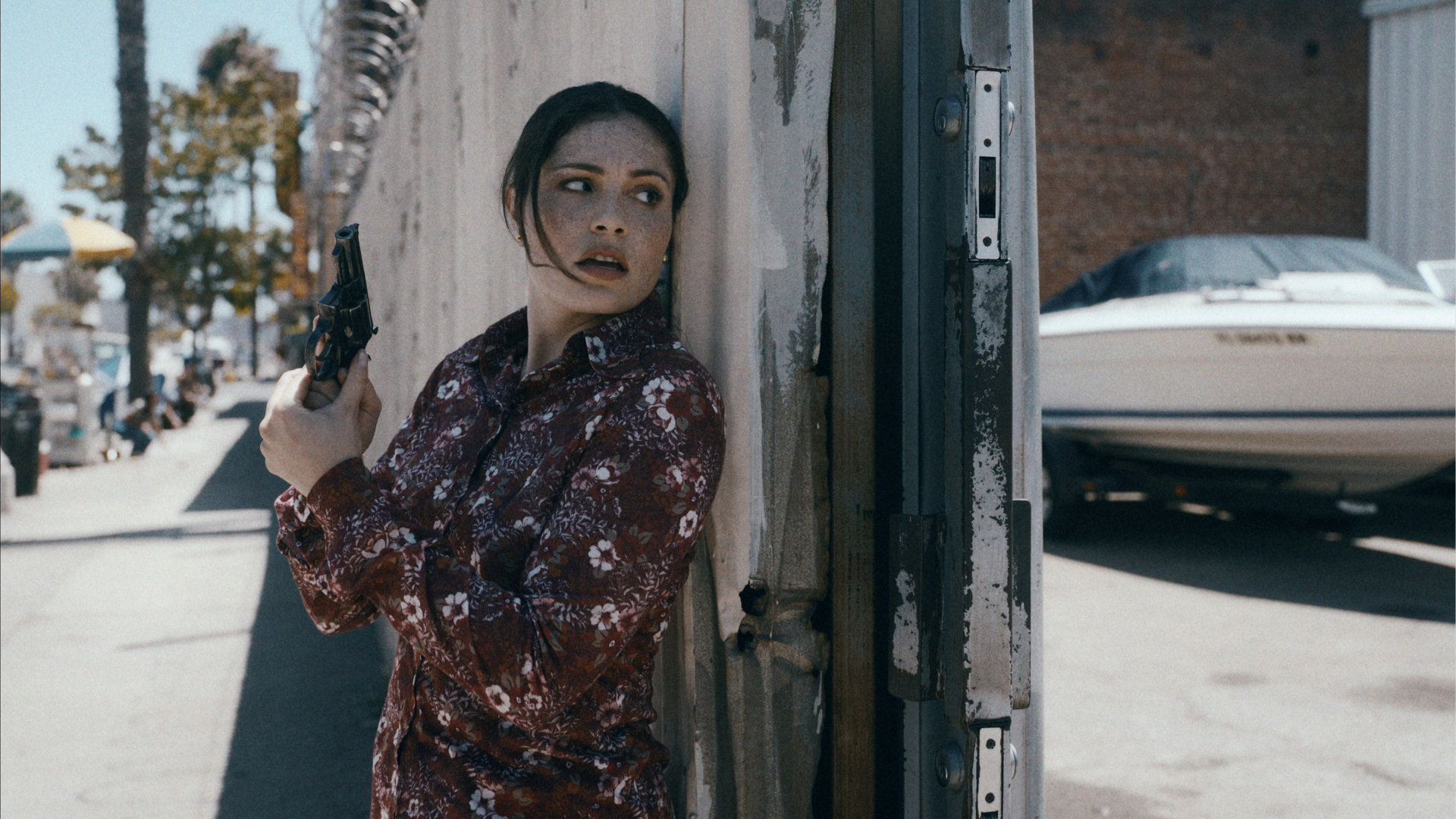
Most of the buzz about Netflix's latest miniseries Griselda is about Sofía Vergara's stunning transformation into the drug queenpin. However, the series about the notorious female crime boss is really a story of determined women on each side of the law. Among the detectives hunting Blanco down, there was June Hawkins (portrayed Juliana Aidén Martinez), one of the first female homicide detectives in Miami. From executive producer Vergara and the team behind Narcos, Griselda depicts in tandem the true stories of Blanco's rise and Hawkins' investigation to bring the ruthless killer to justice. Unlike the infamous "madrina," the detective's story didn't become the stuff of legend. There isn't even a Wikipedia page on Hawkins as of the day of Griselda's Jan 25 premiere.
Per Griselda co-creator and co-showrunner Doug Miro, it took 18 months of research for the show's creative team to piece together that Hawkins was an integral part of Blanco's capture and later conviction. The former detective, now in her 70s, ended up consulting on the show, providing details of her early career and the investigation for the series' scripts, as she became the focus of the show's cop storyline. “It was amazing, that we’re doing the first show about a [female] narco and it was a female cop who discovered her presence in Miami—who pieced together the size of her organization, who understood and recognized what she was doing on the ground,” he told Vanity Fair.
As for how much Hawkins' portrayal in Griselda is fiction, Miro explained that the majority of her storyline is true to life. “There’s a fair amount of artistic license in [the show],” he said. “There was a point where June backed off of being a homicide cop, so we had to [realign to fit] Griselda’s story. But I’d say like 20 or 30% is artistic license, and about 60 or 70% [of what you see] is what she did.”
Read on to learn more about June Hawkins' career, the similarities between her story and Blanco's, and what happened to her after the events of Griselda.
She was hazed by the male officers in her early days as a cop.
June Hawkins, who was born in Miami to a Cuban mother, studied criminal justice at Florida State University before relocating back to the city and joining the Miami-Dade Police Department in 1975. Like Griselda Blanco, June Hawkins was a recently divorced single mother when she entered her chosen field to provide for their children. “A fireman who [Hawkins] went on a date with told her that the police department was hiring because they needed both women and Spanish speakers,” he said. “June had never thought about being a police officer. She just wanted the health benefits.”
As seen in the series, Hawkins first worked as an intelligence analyst, who translated for the white male detectives who couldn't speak to Spanish-speaking witnesses. She also faced all of the hazing typical of a boys' club like a police department, but she often proved herself indispensable because she shared the cultural heritage of the Latino witnesses, as her family was from Cuba. Still, in an interview with Tudum, Hawkins recalled that much of the treatment shown on the series, including the air conditioner incident and her separation from the bullpen, all really happened.
“Good lord, in those days, you just didn’t make a big deal out of some of the teasing and the air conditioning with the nipple hardening and any of that stuff — that was something that you just rolled with,” she said. “Homicide detectives had quite a reputation of being ball-busters, and so I was bracing for some of that. I knew they were testing me.”
Stay In The Know
Get exclusive access to fashion and beauty trends, hot-off-the-press celebrity news, and more.
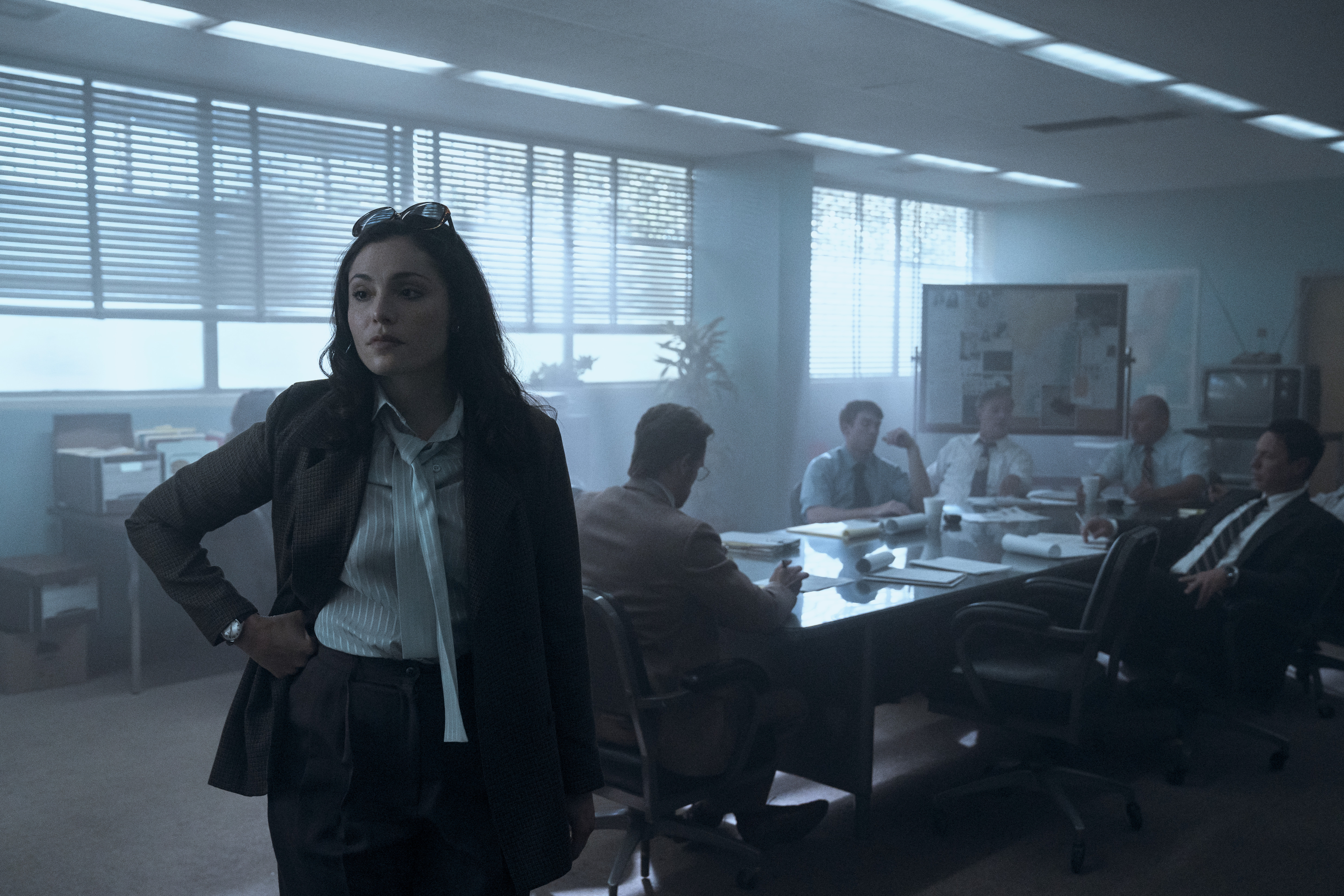
As part of the “CENTAC 26” team during the Miami drug war, Hawkins made a comprehensive report about the key players involved in the crime scene—including Griselda—and forty-two significant cases of the time, which was sent to Washington D.C. to ensure funding for law enforcement in southern Florida. During a podcast appearance in 2017, Hawkins called the report one of her biggest achievements to date, and said she considered the stint in homicide the most impactful time in her career.
"Working in homicide during '79, '80, '81 is probably not only the thing I'm most proud of, but the thing I most enjoyed because I really did impact... it was exciting, it was purposeful, I had a fire in the belly and lightning in my veins, and I was going to get those bad guys."
She only met Griselda Blanco once.
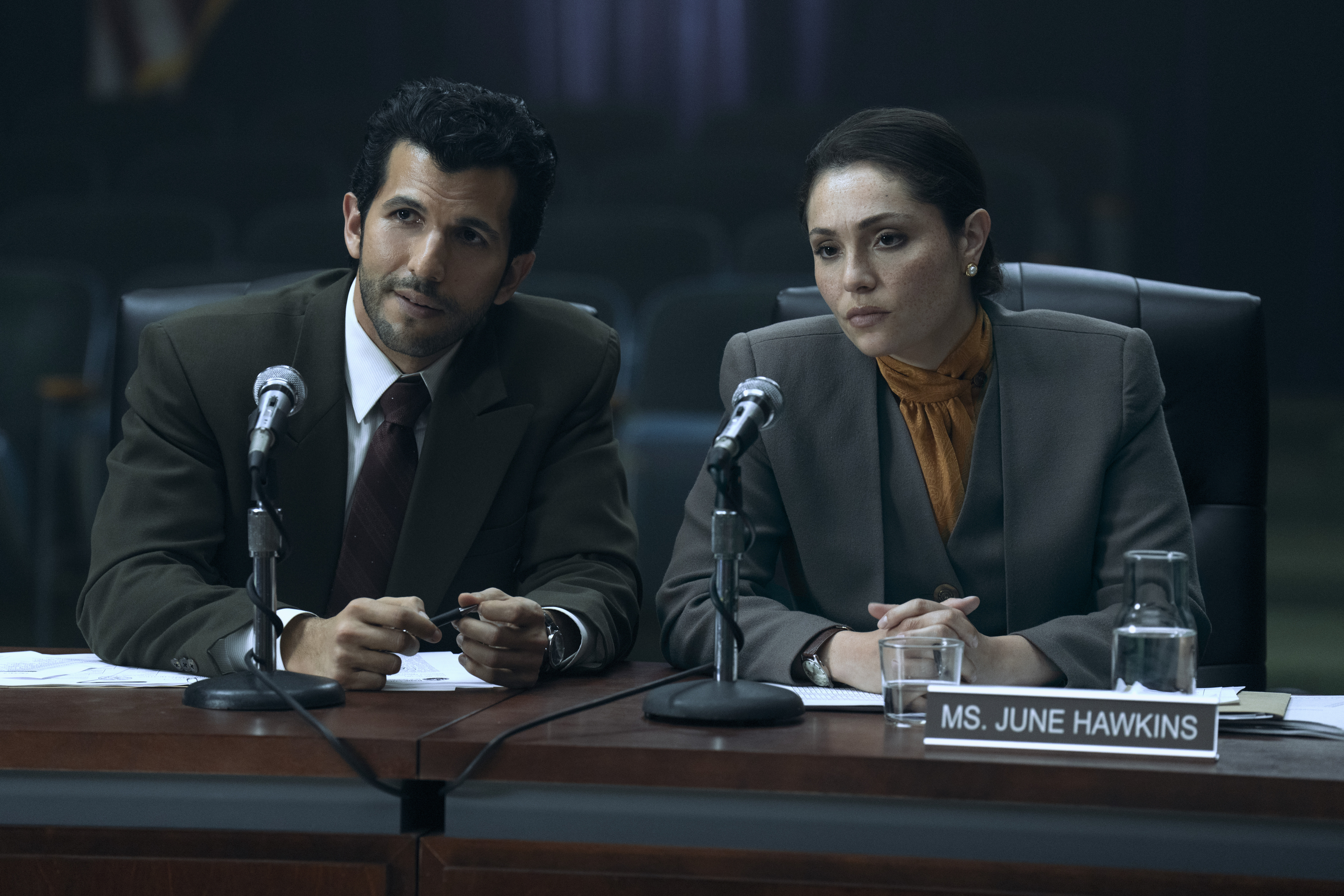
One of the final scenes of Griselda depicts an in-person meeting between Blanco and Hawkins, as the former detective delivers the news that three of Blanco's four sons had been assassinated just months before Blanco was set to end her prison sentence. In real life, Hawkins also encountered Blanco just once, but she explained to Tudum that the real meeting was much less dramatic.
“After having written memos about [Griselda], and talking to informants, and talking to DEA, and all the history that we knew… I only saw her one time,” she told the outlet. “I had left homicide. I was already up on the third floor working in criminal intelligence in a different division. Alan [Singleton, the Miami detective who teamed up with Hawkins on the Blanco case] called me and said, ‘Hey, I got Griselda here in the office.’ ...He knew that I had known of her and worked on her, written about her, 10 years before. And he said, ‘Would you like to come down and see her?’"
“And so I came down the stairs, and there she was sitting at the desk looking like a grandmother," she added. "I didn’t interact with her personally then, I just kind of observed her. I thought, ‘Man, she looks so diminished.’ And in my view, she didn’t look like the big badass that we had assumed that she would be.… She was just diminished in every way. Old, tired-looking, resentful.”
She eventually married one of the other detectives on the Blanco case.
In the later episodes of Griselda, Hawkins worked closely with another detective named Al Singleton (Carter MacIntyre) in the later years of the case. After Blanco was convicted, the pair ended up beginning a romance that eventually led to marriage. Singleton also consulted on Griselda, as well as Hawkins' son Eric Reynolds, who went on to become a cop himself.
June Hawkins-Singleton retired from the police force in 2014 as a Sergant. She and her husband currently reside in Nashville, Tennessee.
Quinci is a Culture Writer who covers all aspects of pop culture, including TV, movies, music, books, and theater. She contributes interviews with talent, as well as SEO content, features, and trend stories. She fell in love with storytelling at a young age, and eventually discovered her love for cultural criticism and amplifying awareness for underrepresented storytellers across the arts. She previously served as a weekend editor for Harper’s Bazaar, where she covered breaking news and live events for the brand’s website, and helped run the brand’s social media platforms, including Instagram, Facebook, and Twitter. Her freelance writing has also appeared in outlets including HuffPost, The A.V. Club, Elle, Vulture, Salon, Teen Vogue, and others. Quinci earned her degree in English and Psychology from The University of New Mexico. She was a 2021 Eugene O’Neill Critics Institute fellow, and she is a member of the Television Critics Association. She is currently based in her hometown of Los Angeles. When she isn't writing or checking Twitter way too often, you can find her studying Korean while watching the latest K-drama, recommending her favorite shows and films to family and friends, or giving a concert performance while sitting in L.A. traffic.
-
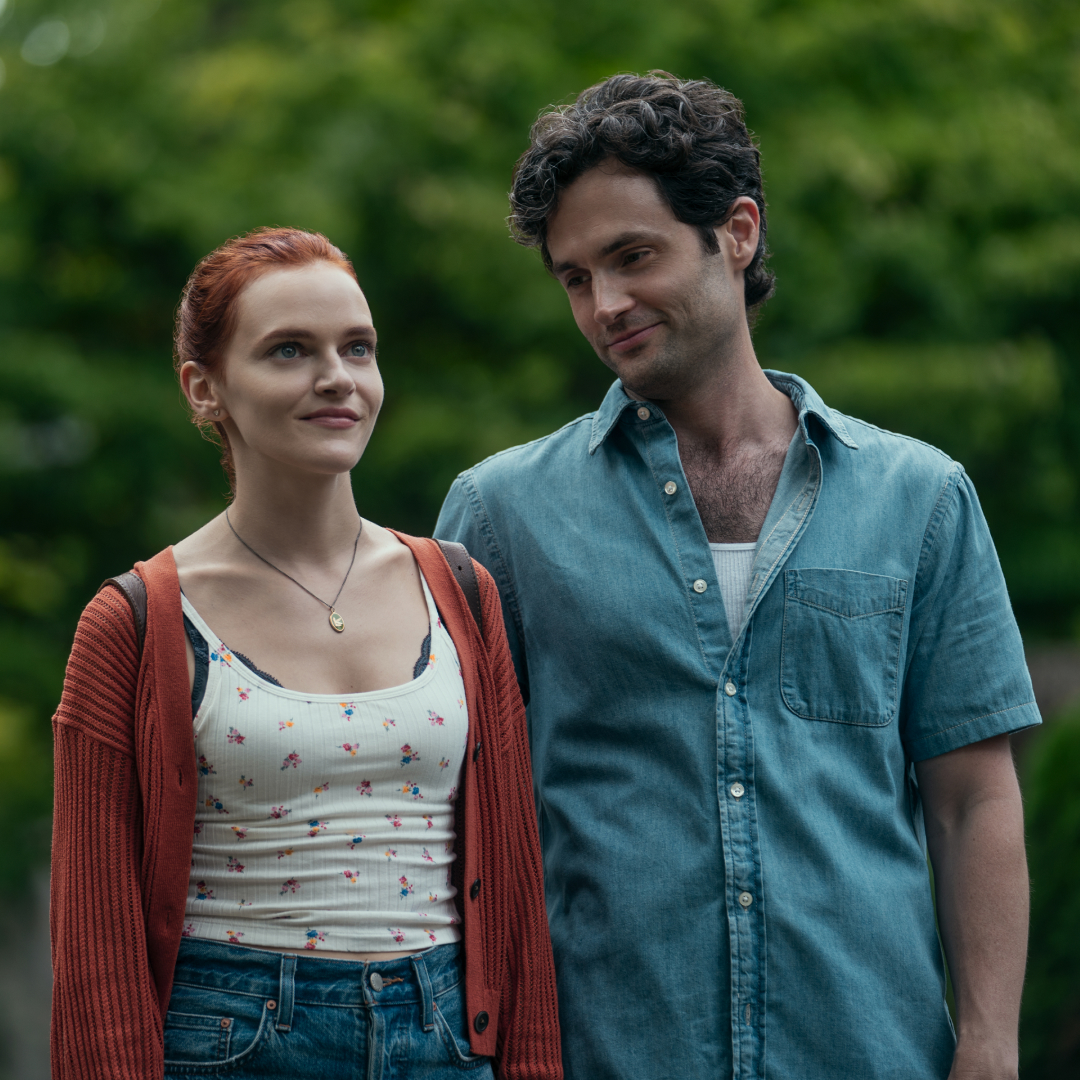 The 'You' Season 5 Cast Features People From Joe's Past, a New Love Interest, Madcap Twins, and More
The 'You' Season 5 Cast Features People From Joe's Past, a New Love Interest, Madcap Twins, and MoreHere's what to know about the star-studded final installment of the Netflix hit.
By Quinci LeGardye
-
 These J.Crew Sale Finds Basically Packed My Suitcase for Me
These J.Crew Sale Finds Basically Packed My Suitcase for MeI'm ready for my next vacation.
By Brooke Knappenberger
-
 Summer's Sportiest Shoe Trend Is Worth Shopping More Than Once
Summer's Sportiest Shoe Trend Is Worth Shopping More Than Once17 pairs from Nordstrom, Mango, and Zara I'm shopping now.
By Julia Marzovilla
-
 Where Are the Members of The Squad From 'Bad Influence: The Dark Side of Kidfluencing' Now?
Where Are the Members of The Squad From 'Bad Influence: The Dark Side of Kidfluencing' Now?The names in the Netflix docuseries have fallen out of touch with subject Piper Rockelle.
By Quinci LeGardye
-
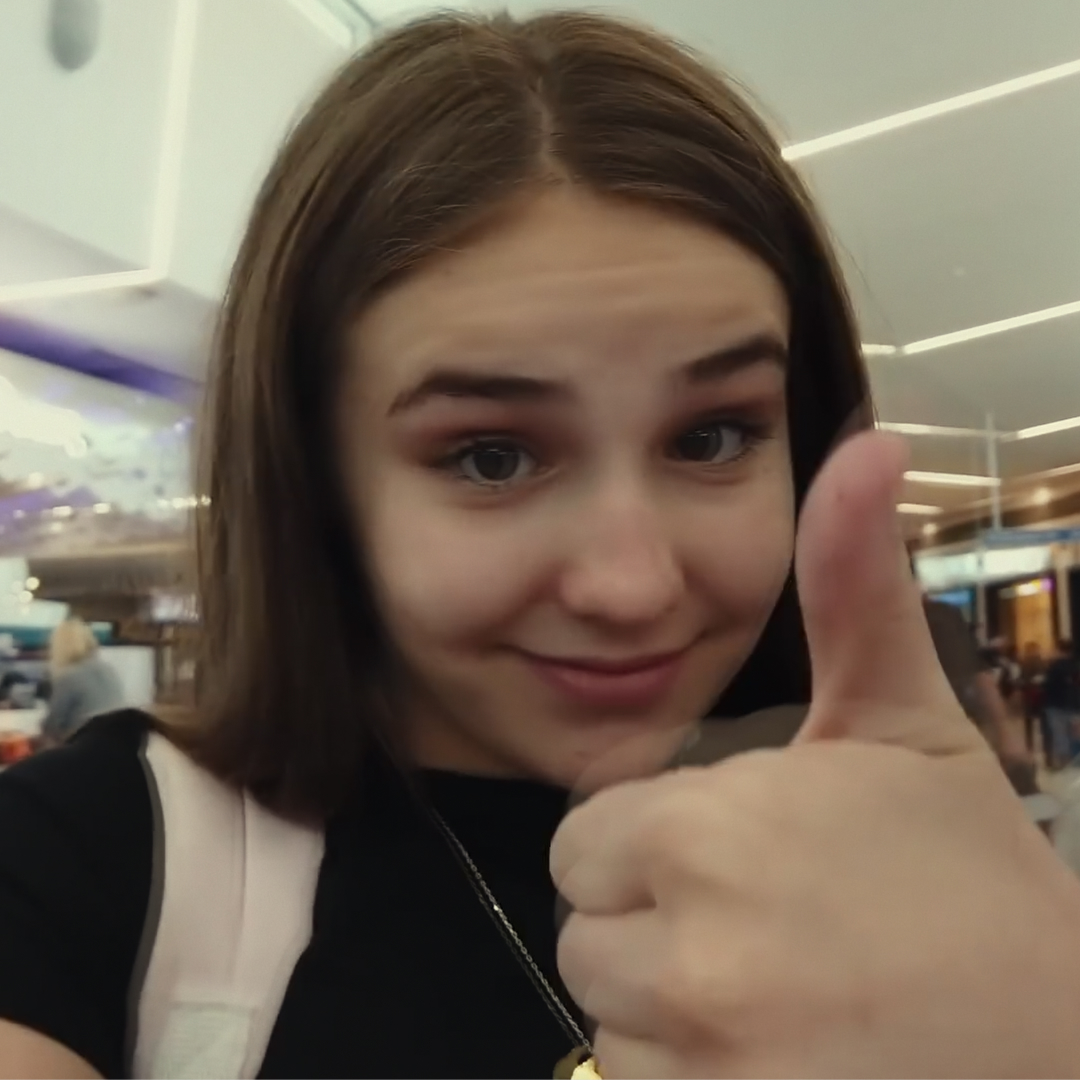 Where Is Piper Rockelle Now? What We Know About the Subject of 'Bad Influence: The Dark Side of Kidfluencing'
Where Is Piper Rockelle Now? What We Know About the Subject of 'Bad Influence: The Dark Side of Kidfluencing'The documentary examines a kidluencing empire and the lawsuit against it.
By Quinci LeGardye
-
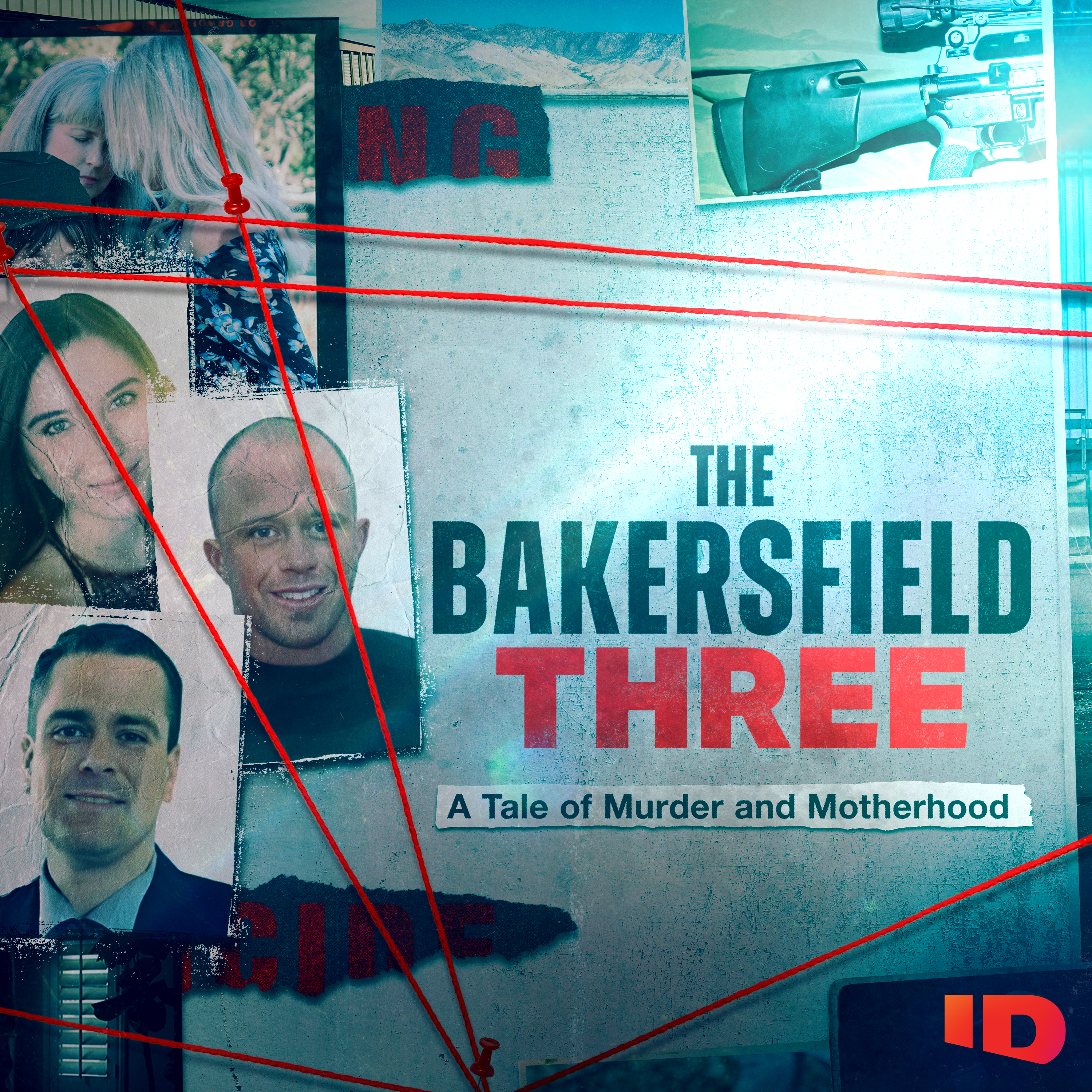 The Trailer for Must-Watch True Crime Docuseries 'The Bakersfield 3' Has Landed
The Trailer for Must-Watch True Crime Docuseries 'The Bakersfield 3' Has LandedIt's based on a 2022 story published in 'Marie Claire'.
By Iris Goldsztajn
-
 The 20 Best True Crime Books to Read in 2025
The 20 Best True Crime Books to Read in 2025These nonfiction titles and memoirs about serial killers and scammers are the definition of page-turners.
By Andrea Park
-
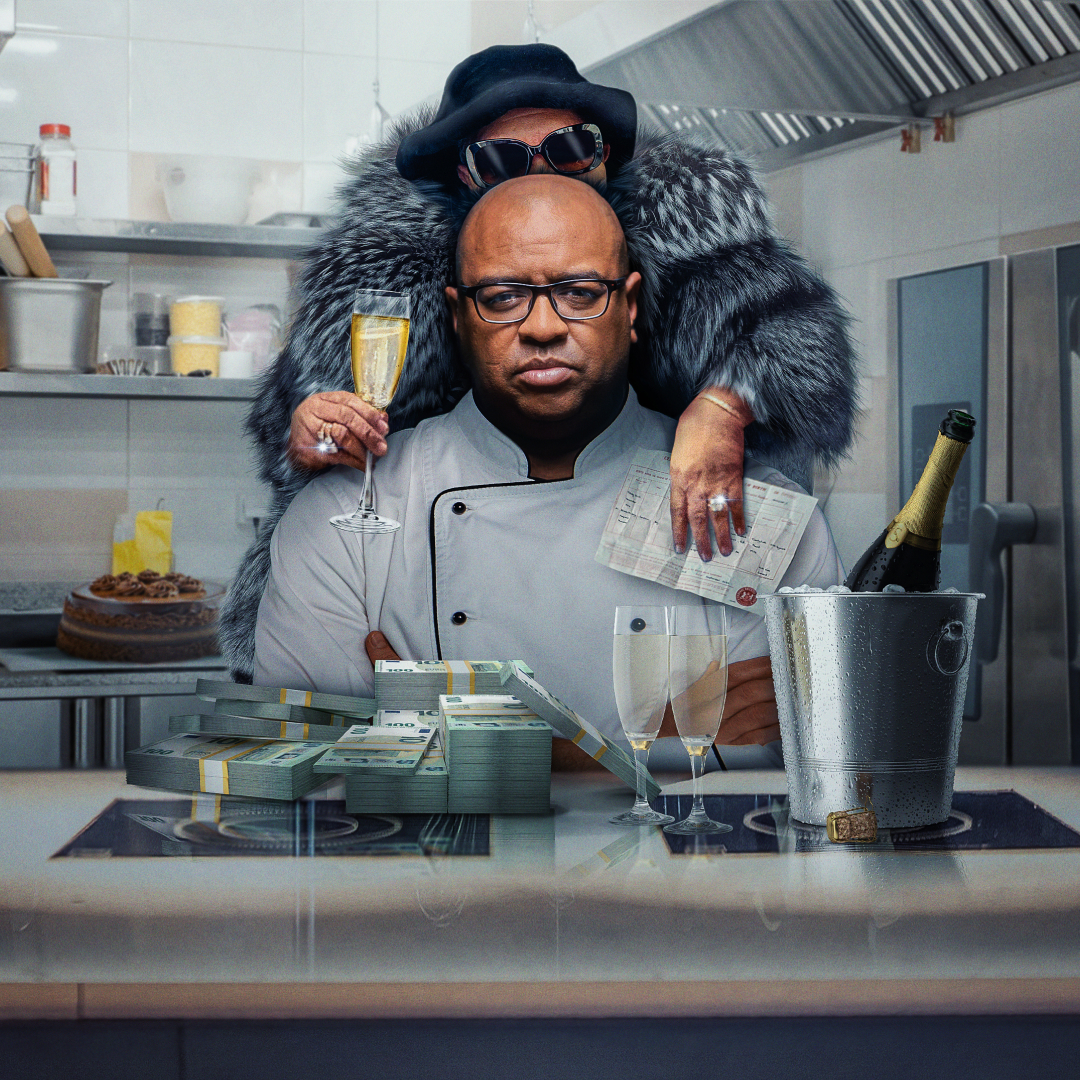 Where Is Graham Hornigold Now? What We Know About the 'Con Mum' Subject
Where Is Graham Hornigold Now? What We Know About the 'Con Mum' SubjectThe renowned pastry chef is on the hook for over £300,000.
By Quinci LeGardye
-
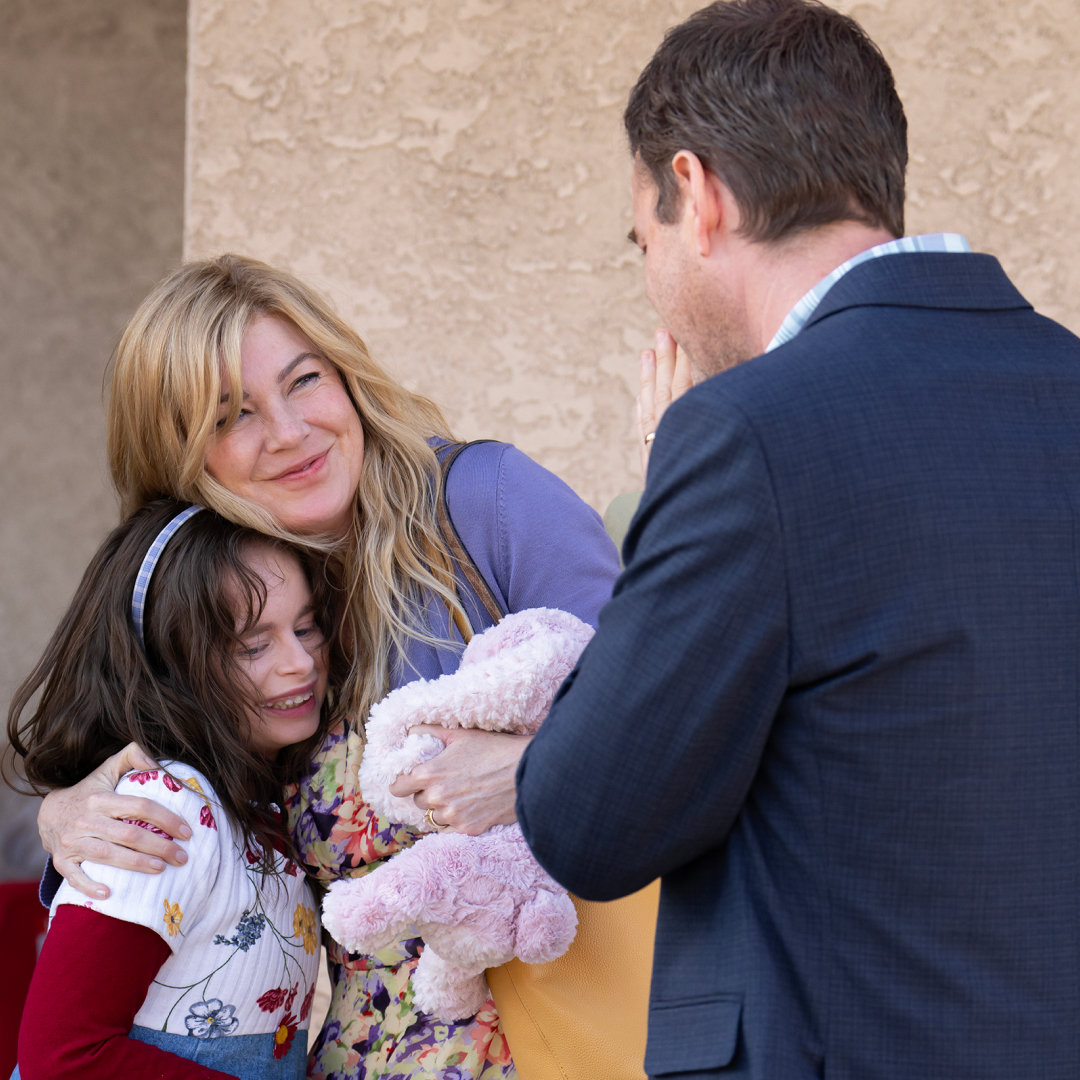 Is 'Good American Family' Based on a True Story? What to Know About Natalia Grace and the Barnett Family
Is 'Good American Family' Based on a True Story? What to Know About Natalia Grace and the Barnett FamilyThe Ellen Pompeo-led Hulu series explores one of the most sensationalized cases in recent years.
By Radhika Menon
-
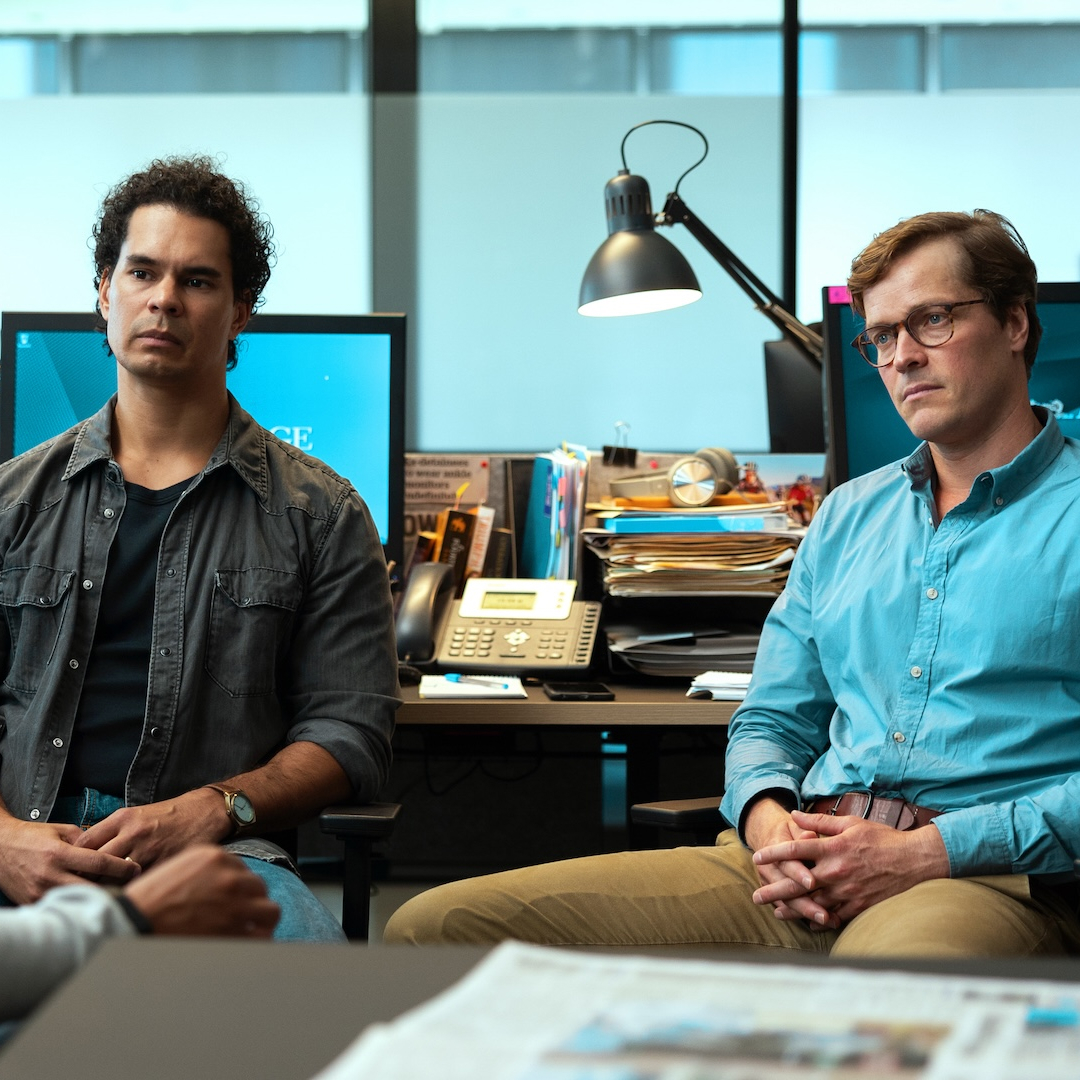 How Beau Donelly and Nick Toscano Uncovered the True Story of 'Apple Cider Vinegar'
How Beau Donelly and Nick Toscano Uncovered the True Story of 'Apple Cider Vinegar'The Netflix true-crime hit is based on their book 'The Woman Who Fooled The World.'
By Quinci LeGardye
-
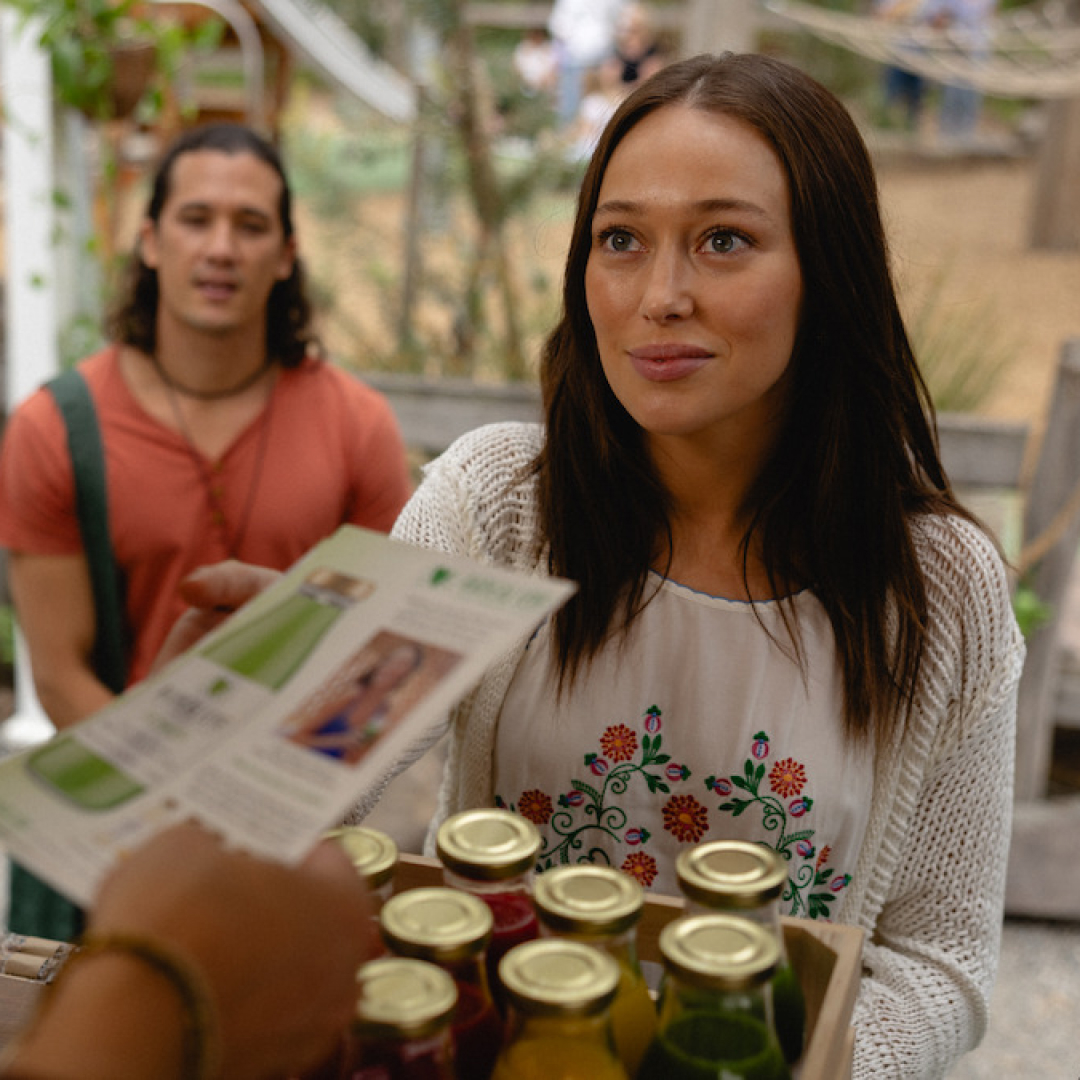 What to Know About Milla Blake of 'Apple Cider Vinegar,' and the Real-Life Influencer Who Inspired the Character
What to Know About Milla Blake of 'Apple Cider Vinegar,' and the Real-Life Influencer Who Inspired the CharacterThe self-nicknamed "wellness warrior" treated her illness through alternative means.
By Quinci LeGardye